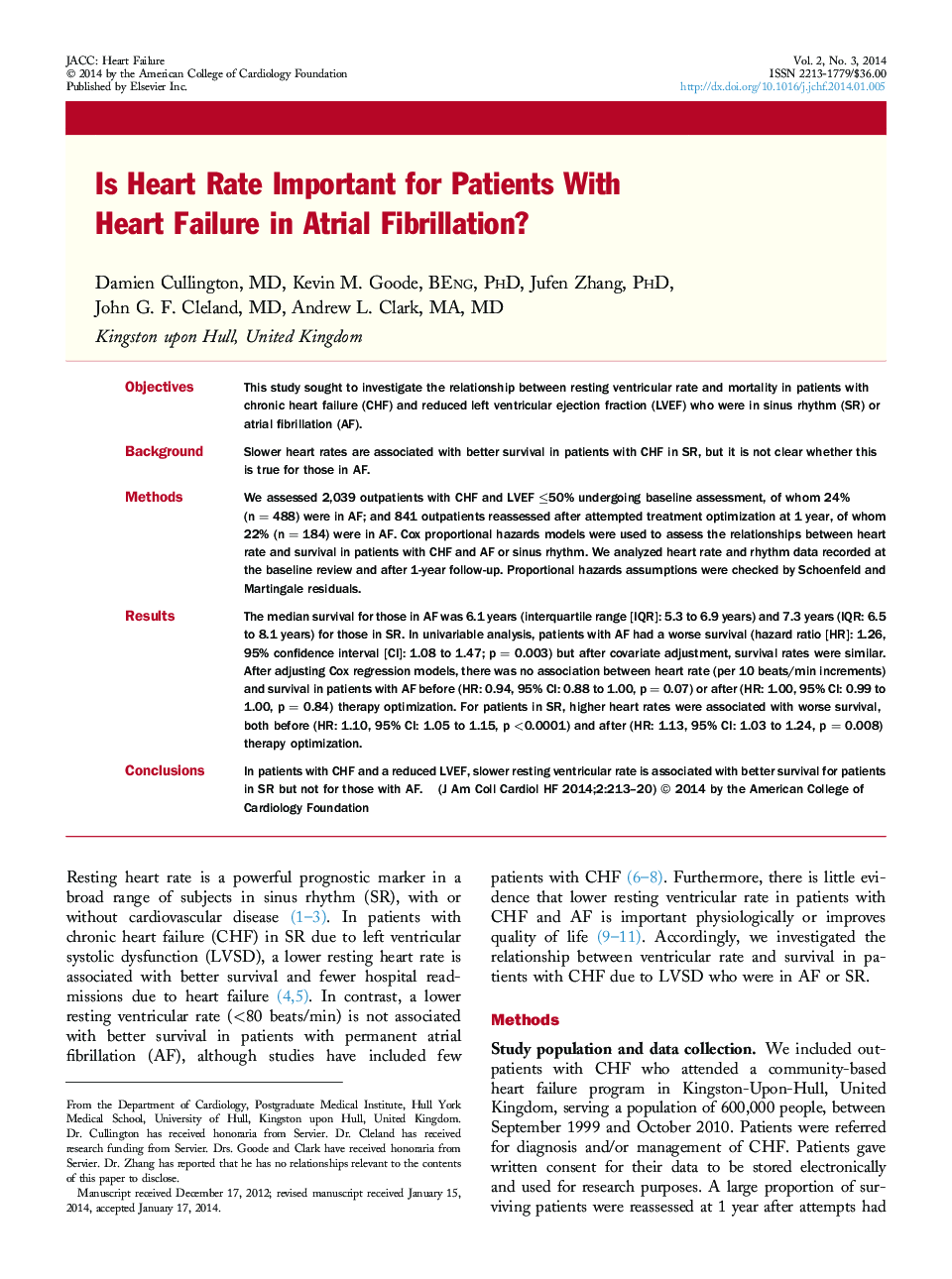| کد مقاله | کد نشریه | سال انتشار | مقاله انگلیسی | نسخه تمام متن |
|---|---|---|---|---|
| 2942499 | 1177129 | 2014 | 8 صفحه PDF | دانلود رایگان |
ObjectivesThis study sought to investigate the relationship between resting ventricular rate and mortality in patients with chronic heart failure (CHF) and reduced left ventricular ejection fraction (LVEF) who were in sinus rhythm (SR) or atrial fibrillation (AF).BackgroundSlower heart rates are associated with better survival in patients with CHF in SR, but it is not clear whether this is true for those in AF.MethodsWe assessed 2,039 outpatients with CHF and LVEF ≤50% undergoing baseline assessment, of whom 24% (n = 488) were in AF; and 841 outpatients reassessed after attempted treatment optimization at 1 year, of whom 22% (n = 184) were in AF. Cox proportional hazards models were used to assess the relationships between heart rate and survival in patients with CHF and AF or sinus rhythm. We analyzed heart rate and rhythm data recorded at the baseline review and after 1-year follow-up. Proportional hazards assumptions were checked by Schoenfeld and Martingale residuals.ResultsThe median survival for those in AF was 6.1 years (interquartile range [IQR]: 5.3 to 6.9 years) and 7.3 years (IQR: 6.5 to 8.1 years) for those in SR. In univariable analysis, patients with AF had a worse survival (hazard ratio [HR]: 1.26, 95% confidence interval [CI]: 1.08 to 1.47; p = 0.003) but after covariate adjustment, survival rates were similar. After adjusting Cox regression models, there was no association between heart rate (per 10 beats/min increments) and survival in patients with AF before (HR: 0.94, 95% CI: 0.88 to 1.00, p = 0.07) or after (HR: 1.00, 95% CI: 0.99 to 1.00, p = 0.84) therapy optimization. For patients in SR, higher heart rates were associated with worse survival, both before (HR: 1.10, 95% CI: 1.05 to 1.15, p <0.0001) and after (HR: 1.13, 95% CI: 1.03 to 1.24, p = 0.008) therapy optimization.ConclusionsIn patients with CHF and a reduced LVEF, slower resting ventricular rate is associated with better survival for patients in SR but not for those with AF.
Journal: JACC: Heart Failure - Volume 2, Issue 3, June 2014, Pages 213–220
